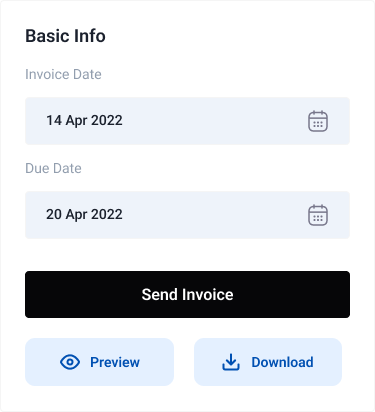Did You Know?
Fincto turns out that context is a key part of learning.
Fincto turns out that context is a key part of learning.
A founders agreement is crucial in entrepreneurship, establishing a legally binding contract between co-founders, defining roles, rights, responsibilities, ownership distribution, liabilities, and investment proportions, governing the partnership and ensuring harmony.
A founder’s agreement is a written document between two or more partners, involving co-founders as a foundational step during the company’s incorporation. A founders agreement aims to resolve disputes and establish a roadmap for co-founders’ strategic direction, ensuring compliance with norms and regulations.
A founders agreement establishes the entity's structure and nature.
Agreement outlines business vision, mission, objectives, and growth trajectory.
A structured role framework helps co-founders avoid overlapping roles by designating responsibilities based on expertise.
Founders agreement clearly outlines ownership distribution, preventing conflicts.
Agreement prevents ideological differences among co-founders through systematic decision-making and deadlock resolution.
Document outlines proportional compensation for co-founders violating agreement mandates.
Agreement protocols address co-founder expulsion, equitable resolution, and fund distribution.
The founders agreement emphasizes confidentiality for co-founders.
THIS FOUNDERS’ AGREEMENT (hereinafter referred to as the ‘Agreement’) is executed on [DD/MM/YYYY] by and among [XXXX] (the ‘Company’), and the following founders (the ‘Founders’):
[Insert Founder Name]
[Insert Founder Name]
NOW, WITH DUE CONSIDERATION to the foregoing and the mutual covenants and agreements hereinafter detailed, the parties hereto concur as follows:
[Continuation of the founders agreement template, incorporating company information, initial capital, ownership structure, vesting schedule, intellectual property rights, amendment protocols, resignation procedures, confidentiality commitments, dispute resolution, and more.]
Fincto combines technology and legal expertise for thousands of legal tasks.
Government processes simplified for convenience.
Package includes two iterations for satisfaction.
Fincto simplifies legal processes, making them accessible and accessible.
For comprehensive guidance, expert consultation is recommended.
The founders agreement emphasizes confidentiality for co-founders, including:
Address and identity proofs of all co-founders.
Identity proof of witnesses.
Clear delineation of the company's objectives.
Number of equity shares for each co-founder and the overall percentage held by each.
Draft comprehensive business plan incorporating objectives and co-founder obligations.
Append additional required information to the agreement, as necessary.
Notarize the agreement on a non-judicial stamp paper after unanimous agreement.
Seek expert legal counsel before finalizing the agreement to ensure its robustness.
Validate the draft for inclusion of mandatory provisions, eliminating ambiguities.
Obtain unanimous acknowledgment and approval of the final draft from all co-founders.
Obtain the signature of all co-founders on the notarized agreement.
A founders agreement encompasses several pivotal sections, including:
Identifying co-founders and their roles within the company.
Defining equity ownership distribution and percentage among co-founders.
Potential inclusion of a vesting timetable for equity shares.
Managing intellectual property rights in business ventures.
Outlining decision-making mechanisms, roles, and responsibilities of co-founders.
Describing scenarios leading to termination and exit procedures for co-founders.
Establishing protocols for dispute resolution, including mediation and arbitration.
This Fincto-structured agreement upholds the following clauses:
Fincto streamlines thousands of legal activities with advanced technology.
Fincto streamlines government interactions for increased efficiency.
Improve founders' agreement through two iterations for excellence.
Fincto simplifies legal aspects for a transformational journey.
24/7 customer support team addresses queries and concerns.
Customer may receive a refund for product dislike, damaged, incorrect item, or predefined issues upon return.
Refund policy governs online order cancellation process, details, and procedures for refunds.
A Website Disclaimer communicates liabilities to visitors, safeguards intellectual property, discourages unauthorized usage, and prevents misuse accusations. It can be standalone or integrated into legal documents, demonstrating responsible online conduct and promoting responsible behavior.
A Cookie Policy is essential for online transparency and legal compliance, educating visitors about active cookies, their purpose, and user data processing. It is often a legal requirement in many jurisdictions.
E-commerce relies on efficient shipping and delivery; a Shipping Policy provides clear information on fees, timelines, and procedures, improving customer experience.
A well-crafted contract securely stores user data and complies with terms.
Ethical service providers must communicate service conditions to clients.
Policies guide service provider-customer legal framework.
Legal contracts require integrated privacy policies for websites.
Privacy guidelines outline data collection, confidentiality, sharing, and collaboration.
Understanding policies ensures responsible online conduct, legal compliance, and user experience.
From deciphering the intricacies of founders agreements to ensuring their meticulous execution, this comprehensive guide stands as your navigational tool into the realm of sound business partnerships. Experience the prowess of legal precision amplified by Fincto.
GSTR1 is the form used for tax returns on outward supplies, encompassing both interstate and intrastate B2B and B2C sales. It also includes details of purchases under reverse charge and inter-state stock transfers made during the tax period. Late filing of GSTR1 can result in a late fee, which is collected in the subsequent open return, Form GSTR-3B. Since January 1, 2022, taxpayers cannot file Form GSTR-1 if they haven't filed Form GSTR-3B in the preceding month.
This amendment form corrects any discrepancies between the GSTR-1 of a taxpayer and the GSTR-2 of their customers. The filing window for GSTR1A is between the 15th and 17th of the following month.
Monthly GST returns for inward supplies are filed using this form. It contains taxpayer information, return period, and detailed invoice-level purchase information related to goods and services separately.
This auto-generated tax return compiles purchases and inward supplies made by a taxpayer based on the information from their suppliers GSTR-1.
An auto-generated document that acts as an Input Tax Credit (ITC) statement for taxpayers, facilitating faster return filing, minimizing errors, easing reconciliation, and simplifying compliance.
This form is used to file consolidated monthly tax returns. It contains the taxpayers basic information, turnover details, final aggregate-level inward and outward supply details, tax liability under CGST, SGST, IGST, additional tax (+1% tax), ITC, cash, liability ledgers, and details of other payments like interests, penalties, and fees.
This is a tax notice issued by the tax authority to a defaulter who has failed to file monthly GST returns on time.
It is a temporary consolidated summary GST return for inward and outward supplies, introduced as a relaxation for recently registered businesses.
This quarterly GST return is filed by compounding vendors. It includes the total value of supplies made during the covered period and details of tax paid at the compounding rate (not exceeding 1% of aggregate turnover) along with invoice details for inward supplies.
The Quarterly purchase-related tax return filed by composition dealers, automatically generated by the GSTN portal based on information from the suppliers GSTR-1, GSTR-5, and GSTR-7.
Variable return for Non-resident foreign taxpayers, containing details of the taxpayer, return period, and invoice details of all goods and services sold and purchased. It also includes imports on Indian soil for the registered period/month.
This monthly GST return is for ISDs (Input Service Distributors), containing details of invoice-level supply from the GSTR-1 of counterparties, credit for ITC services received, debit for ITC reversed or distributed, and closing balance.
It is a monthly return for TDS (Tax Deducted at Source) transactions, containing the taxpayers basic information, return period, supplier's GSTIN, and invoices against which the tax has been deducted, categorized under SGST, CGST, and IGST. It also includes details of other payments like interests and penalties.
This is the monthly return for e-commerce operators. It contains the taxpayers basic information, return period, details of supplies made to customers through the e-commerce portal, tax collected at source, tax payable, and tax paid.
The annual consolidated tax return, comprising detailed income and expenditure, regrouped according to the monthly GST returns filed by the taxpayer.
The annual composition return form to be filed by every taxpayer enrolled in the composition scheme.
This Audit form is filed by taxpayers liable to get their annual reports audited when their aggregate turnover exceeds ₹2 crores in a financial year.
Filed before cancelling GST registration, this final GST return contains the details of all supplies, liabilities, tax collected, and tax payable.
Variable tax return for taxpayers with UIN (Unique Identification Number), containing details of purchases made by foreign embassies and diplomatic missions for self-consumption during a particular month.
LUT and bonds confirm exporter commitment, guiding when to opt for them and claiming IGST refunds for exports.
Staying compliant with GST due dates is vital to avoid late payment charges and interests. Fincto provides updated information on due dates for the financial years 2021-2022 and 2022-2023. Keeping clients informed of these updates can help taxpayers stay on top of their compliance requirements and ensure timely filing of GST returns.
Taxpayers registered under the Composition Scheme must file taxes using CMP-08 every quarter and file GSTR-4 annually. The due date for the GST return for Composition Scheme registrants is the 18th of the month following each quarter.
Fincto provides a hassle-free GST return filing experience with the support of a team of dedicated experts. Fincto offers a seamless GST compliance journey. It's commendable to see such dedication to assisting taxpayers in their GST return filing processes.
A GST Certificate is an important document issued by the Indian government which proves that a business is registered under GST. The certificate contains crucial information like the GST identification number, name, and address of the business. With a GST Certificate on hand, businesses can easily charge and collect GST, apply for loans, and participate in tenders.




Fincto provides expert assistance, streamlined processes, high customer satisfaction, expert support, and smooth professional interactions. It empowers business and employee relations with Fincto-powered employment agreements, ensuring precision and convenience.
A modification to the existing provisions of a corporation's articles of incorporation
Issued by certifying authorities for electronic document signing.
The elected governing body responsible for a corporation's operation. Certificate of Incorporation: The document filed to create a corporation
A unique identification number for directors. Dissolution: The process that legally ends a corporation's existence
The act of forming a corporation under specific jurisdiction laws
An entity with limited personal liability and pass-through taxation
Protection from the debts and claims against a company
The process to secure exclusive use of a corporate name for a specific period
The statutory address of a corporation
Mattis turpis in suspendisse sed risus nulla adipiscing augue pellentesque nam mi tellus consectetur

Gerry Kellmen
Head of financeMattis turpis in suspendisse sed risus nulla adipiscing augue pellentesque nam mi tellus consectetur
Johnson
WordPressMattis turpis in suspendisse sed risus nulla adipiscing augue pellentesque nam mi tellus consectetur
Maxwell
PHP DeveloperMattis turpis in suspendisse sed risus nulla adipiscing augue pellentesque nam mi tellus consectetur
Anderson
Head of financeBanca is a leading bank in the worldzone and a prominent international banking institution
COTATION
2023-01-05 14:00 (INTERNATIONAL TIME)